With no less than 70 days remaining until Colorado’s Super Tuesday presidential primary and statewide precinct caucuses kick off the 2024 election year, the key races and battles that will dominate the ballot and vie for voters’ attention are already starting to take shape.
Coloradans will have the opportunity to cast votes three times through the year — first in the March 5 presidential primary, then in the June 25 state-level primary, and finally in the Nov. 5 general election.
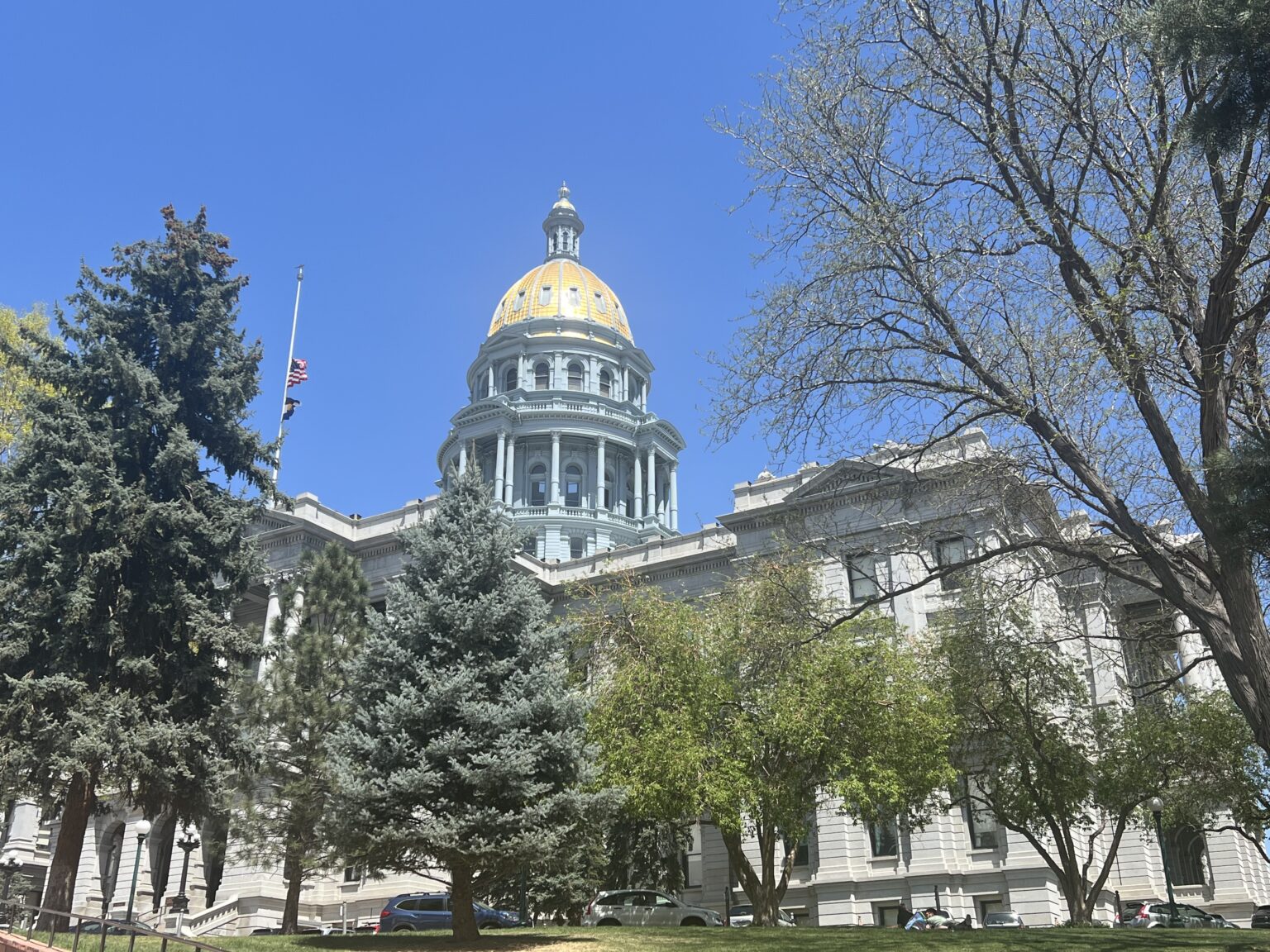
The Colorado Capitol. Credit-Denver Post
The main event in 2024 will be the race for the White House, with a rematch between President Joe Biden and former President Donald Trump looking increasingly likely, though Colorado’s increasingly Democratic electorate — Biden beat Trump in the state by more than 13 percentage points in 2020 — means the state probably won’t be seriously contested by either campaign, with a handful of swing states gobbling up resources and attention.
While there will be only two contests on the statewide ballot next year — for the presidency and an at-large seat on the University of Colorado Board of Regents — Colorado is already host to a record-shattering U.S. House race that’s drawn national attention and could determine which party controls the chamber after the election as Republican U.S. Rep. Lauren Boebert bids for another term.
Additionally, Democratic U.S. Rep. Yadira Caraveo is vying for a second term in the state’s other battleground district, while Republican U.S. Rep. Ken Buck’s decision to retire after five terms in the GOP-leaning 4th Congressional District threatens to draw a crowded field in the primary.
Down the ballot, Democrats will be defending their historic majorities in the legislature, while Republicans hope to regain some of the ground the party has lost since 2018, when Democrats won uncontested control of state government.
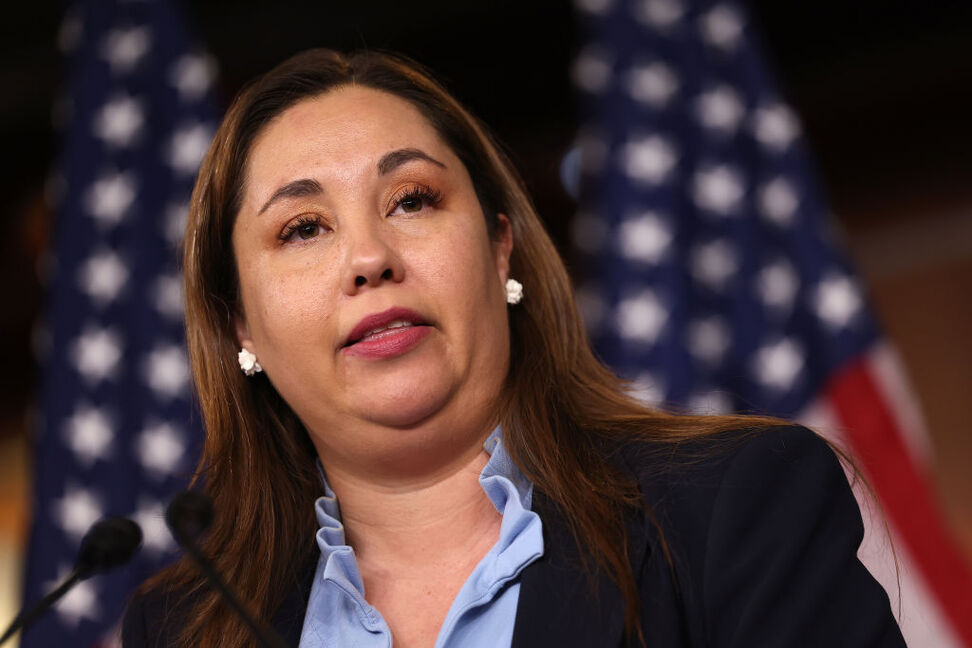
Yadira D. Caraveo is an American politician and pediatrician serving as the U.S. representative for Colorado’s 8th congressional district is vying for a second term. Credit-Denver News
Voters across the state will decide whether to enshrine the right to abortion in the state constitution or effectively outlaw the procedure. They’ll also grapple with soaring property taxes and consider whether to revamp how candidates make it to the fall ballot.
For the elections into Colorado’s capitol, fourteen lawmakers will be term-limited this year: six in the House of Representatives and eight in the Senate.
Representatives, who serve two-year terms, cannot serve more than four consecutive terms. Senators serve for four years and are limited to two consecutive terms.
House District 8 in northeast Denver is currently represented by Democrat Leslie Herod. So far, three people have registered with the secretary of state’s office to replace Herod, all Democrats. Victor Bencomo is a Navy veteran who served as president of the Giffords Gun Owners for Safety Colorado chapter. Sharron Pettiford is a labor organizer, activist and consultant who serves as the 2nd vice president of the Denver NAACP chapter and president of the Colorado Coalition of Black Trade Unionists. Also running is Christi Devoe.
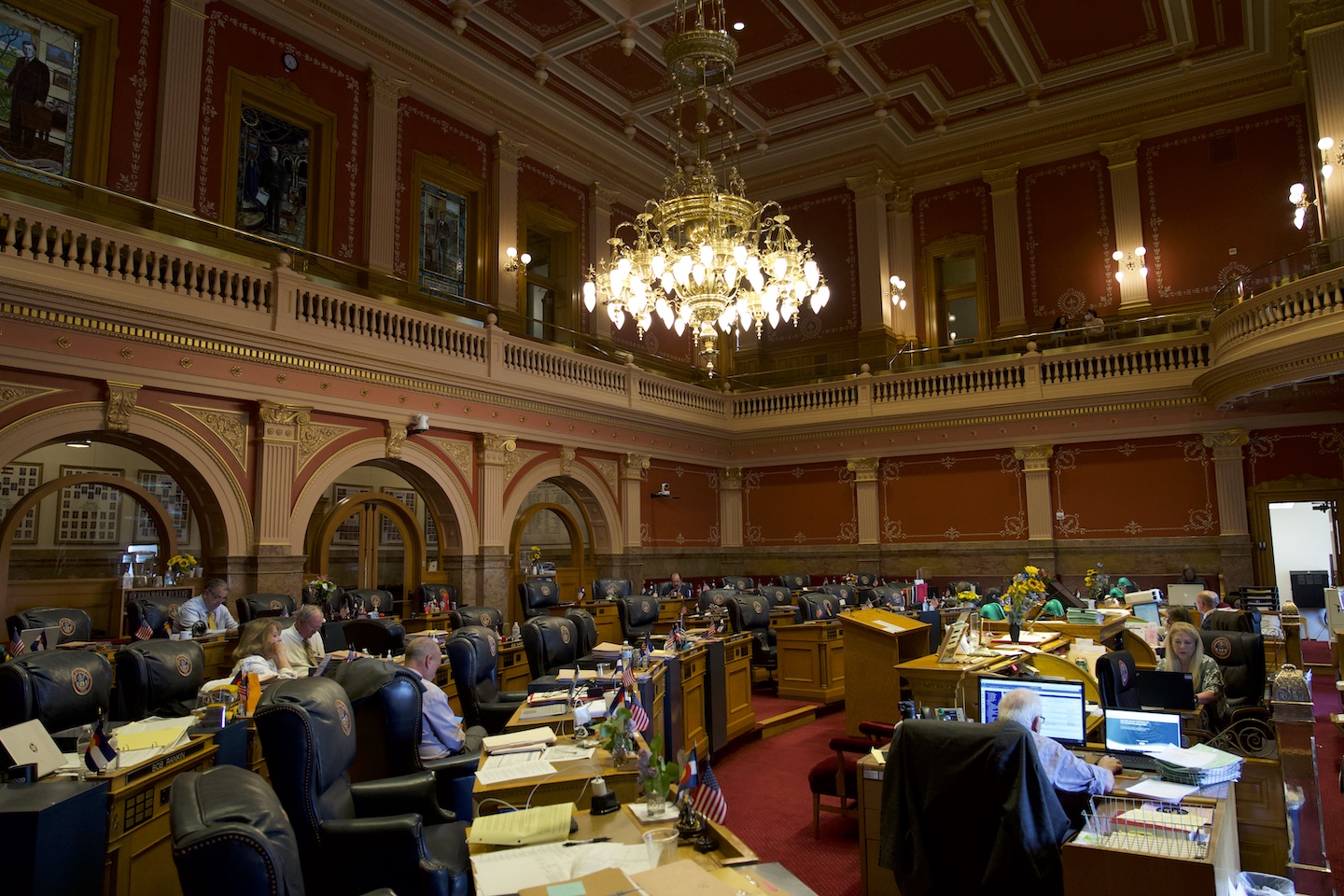
A view of the Colorado Senate at the Capitol. Credit-Denver Post
Herod won reelection in 2022 with 88.1% of the vote. The seat has nearly a 75-point Democratic advantage, according to an analysis of recent election results.
There are also three Democrats running to replace term-limited Democratic House Speaker Pro Tem Chris deGruy Kennedy, who currently represents the Lakewood-centered House District 30. That includes his wife, Kyra deGruy Kennedy, who currently serves as the Rocky Mountain director for Young Invincibles and does business and political consulting, according to her LinkedIn profile. Kya deGruy Kennedy has the endorsements of elected officials including her husband and House Speaker Julie McCluskie. Lakewood City Council member Rebekah Stewart is also running for the seat, as is public school teacher and union leader Rhiannon Wenning.
Chris deGruy Kennedy won his seat in 2022 with 66.6% of the vote. The district has a 27.6-point Democratic advantage.
House District 36 in eastern Aurora, currently represented by Democrat Mike Weissman, has four registered candidates; Democrat Idris Keith ran unsuccessfully for an Arapahoe County Commission seat in 2020; lawyer Michael Carter, also a Democrat, is currently an at-large member of the Aurora Public Schools Board of Education; Democrat Eric Olsen and Republican Pedro Espinoza, who lists himself as a law enforcement officer on his website, are also running.
House District 36 in eastern Aurora, currently represented by Democrat Mike Weissman, has four registered candidates; Democrat Idris Keith ran unsuccessfully for an Arapahoe County Commission seat in 2020; lawyer Michael Carter, also a Democrat, is currently an at-large member of the Aurora Public Schools Board of Education; Democrat Eric Olsen and Republican Pedro Espinoza, who lists himself as a law enforcement officer on his website, are also running.
Weissman won in 2022 with 64.1% of the vote. That district has a nearly 30-point Democratic advantage.
Democratic Rep. Dafna Michaelson Jenet in House District 32, Republican Rep. Marc Catlin in House District 58 and Democratic Rep. Barbara McLachlan in House District 59 are also term-limited in 2024. No candidate has yet registered in those races. House District 32 is safe for Democrats, House District 58 is safely Republican and House District 59 is a toss-up.
Current Democratic Rep. Cathy Kipp is running to replace term-limited Democratic Sen. Joann Ginal in Senate District 14 in western Fort Collins. Kipp first assumed office in 2019. Ginal won in 2020 with 66.6% of the vote. The seat has a 33-point Democratic advantage.
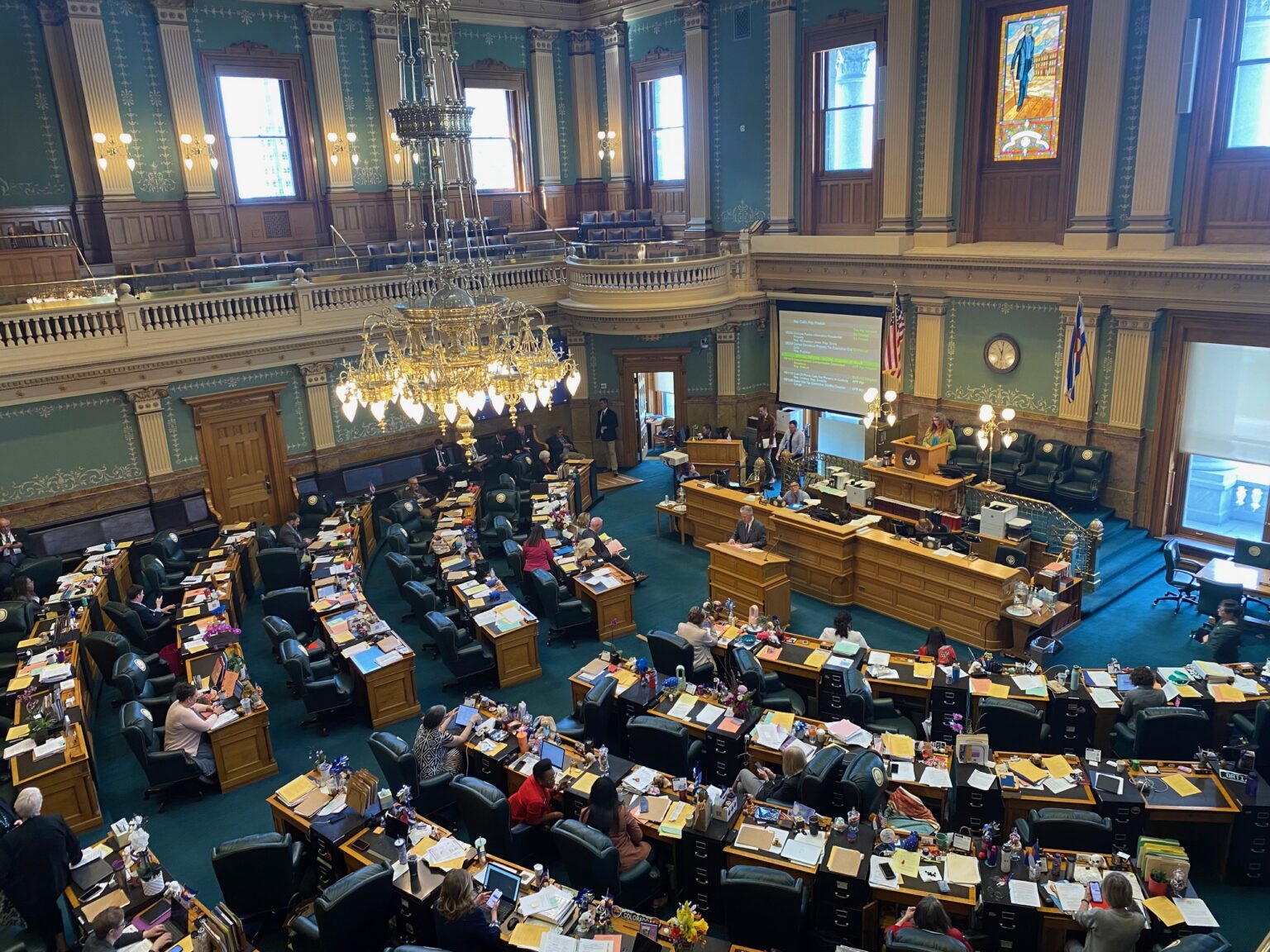
A view of the Colorado House of Representatives. Credit-Colorado Newsline
Over in Boulder-centric Senate District 18, current Rep. Judy Amabile is running to replace Senate President Steve Fenberg, both Democrats. Fenberg has endorsed Amabile as his successor.
Fenberg won reelection in 2020 with 82.9% of the vote. The district is one of the safest for Democrats in the state, with a 65-point Democratic advantage.
Democrat Obi Ezeadi hopes to replace Democratic Sen. Rachel Zenzinger in Senate District 19, which includes parts of Westminster and Arvada. Ezeadi serves as a Westminster City Council member and recently founded a political action committee to support Black, Indigenous and people of color running for state and local office.
The sprawling Senate District 21, which includes parts of Commerce City and areas east of the Denver metro area, is currently represented by Senate Majority Leader Dominick Moreno. Michaelson Jenet, the term-limited representative, is running for that seat next year, as is Republican Frederick Alfred Jr.
Moreno won in 2020 with 63.5% of the vote. The district leans Democrat by about 14 points.
Weissman is running to replace Democratic Sen. Rhonda Fields in Senate District 28, centered on Aurora. Republican Cory Parella, who ran for House District 42 last year, is also in the race.
Fields won in 2020 with 68.7% of the vote and the district has a roughly 32-point advantage.
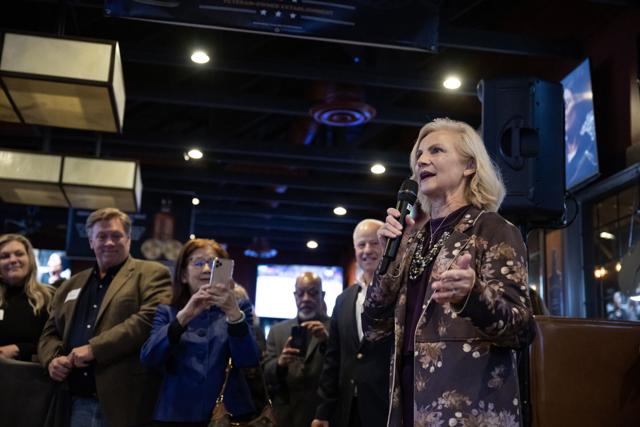
Aurora City Council member Françoise Bergan gives a victory speech during the “No On HH — Advance Colorado election night watch party,” at JJ’s Place in Aurora. Credit-The Denver gazette
Republican Sen. Jim Smallwood in Senate District 2, Republican Sen. Bob Gardner in Senate District 12 and Democratic Sen. Kevin Priola in Senate District 13 are also term-limited, but no candidates have yet registered in those races. Senate District 2 is a safe Republican seat, while Senate Districts 12 and 13 are closer to a toss-up.
Candidates have also registered in other races where the incumbent is not term limited. Every House seat is up for grabs in 2024, as are 17 total Senate seats.
This coming election season will let us know whether Colorado voters are ready to discard partisan primaries and adopt ranked-choice voting, whether state voters are as supportive of abortion rights as they have been in years past and how voters will handle soaring property taxes.

Businessman Kent Thiry speaks at Club 20 about ballot measures to help end gerrymandering in Colorado. Colorado-politics
Helmed by wealthy former DaVita CEO Kent Thiry, the force behind several successful statewide ballot measures in recent years, a sweeping measure to change the state’s primary system — replacing it with a so-called jungle primary, where the top four finishers advance to the November election — has so far drawn fierce opposition from both major political parties.
The proposal, which has yet to be approved for signature gathering by the state’s Title Board, could evolve by the time it makes the ballot, but at this point also includes a move to ranked-choice voting, a method several states and a handful of Colorado cities use.
Thiry, who has long had his eye on a run for governor, was behind ballot measures that put in place the state’s semi-open primary system and reestablished the presidential primary. He was also the driving force behind measures that created independent legislative and congressional redistricting commissions.






